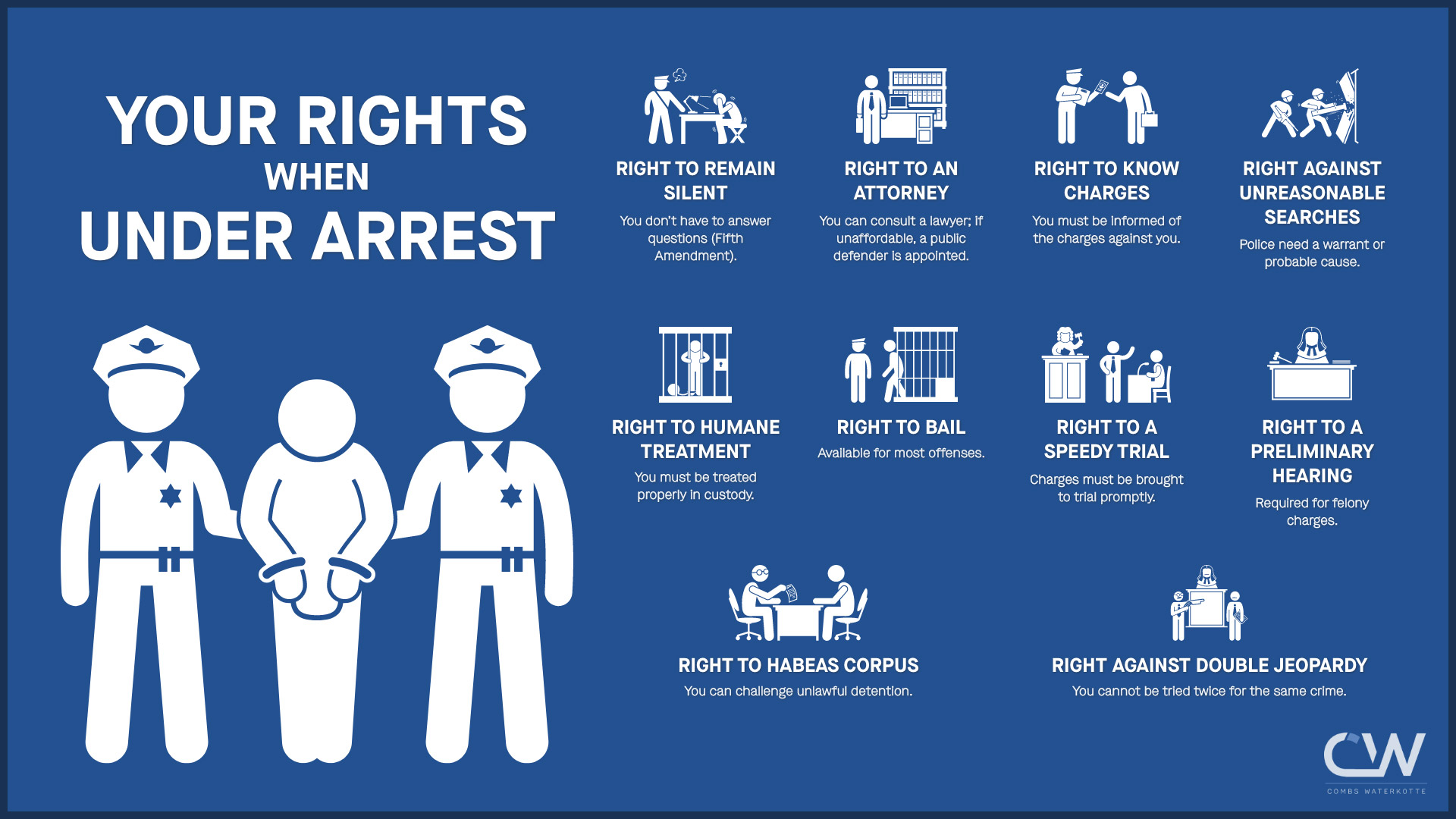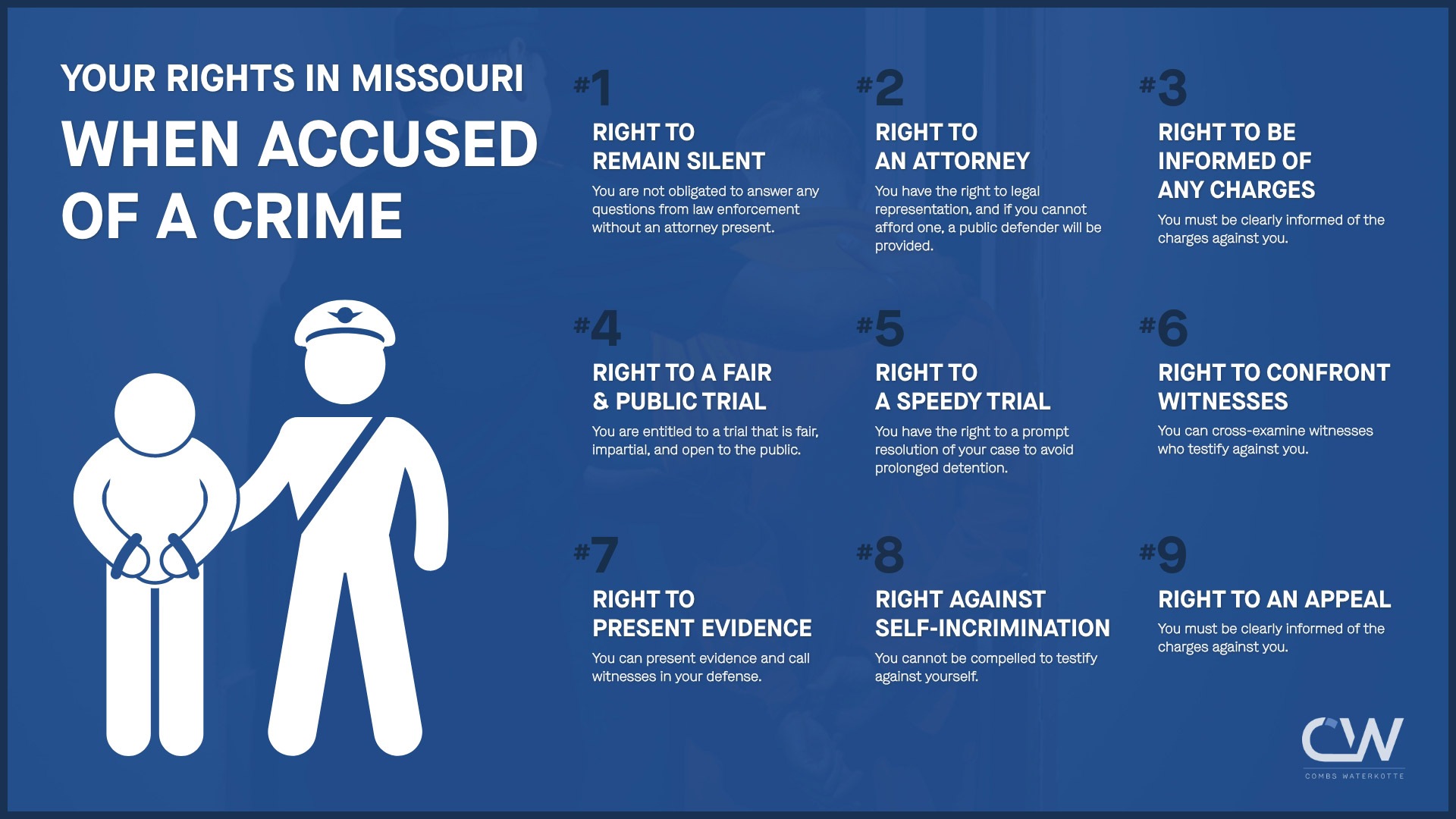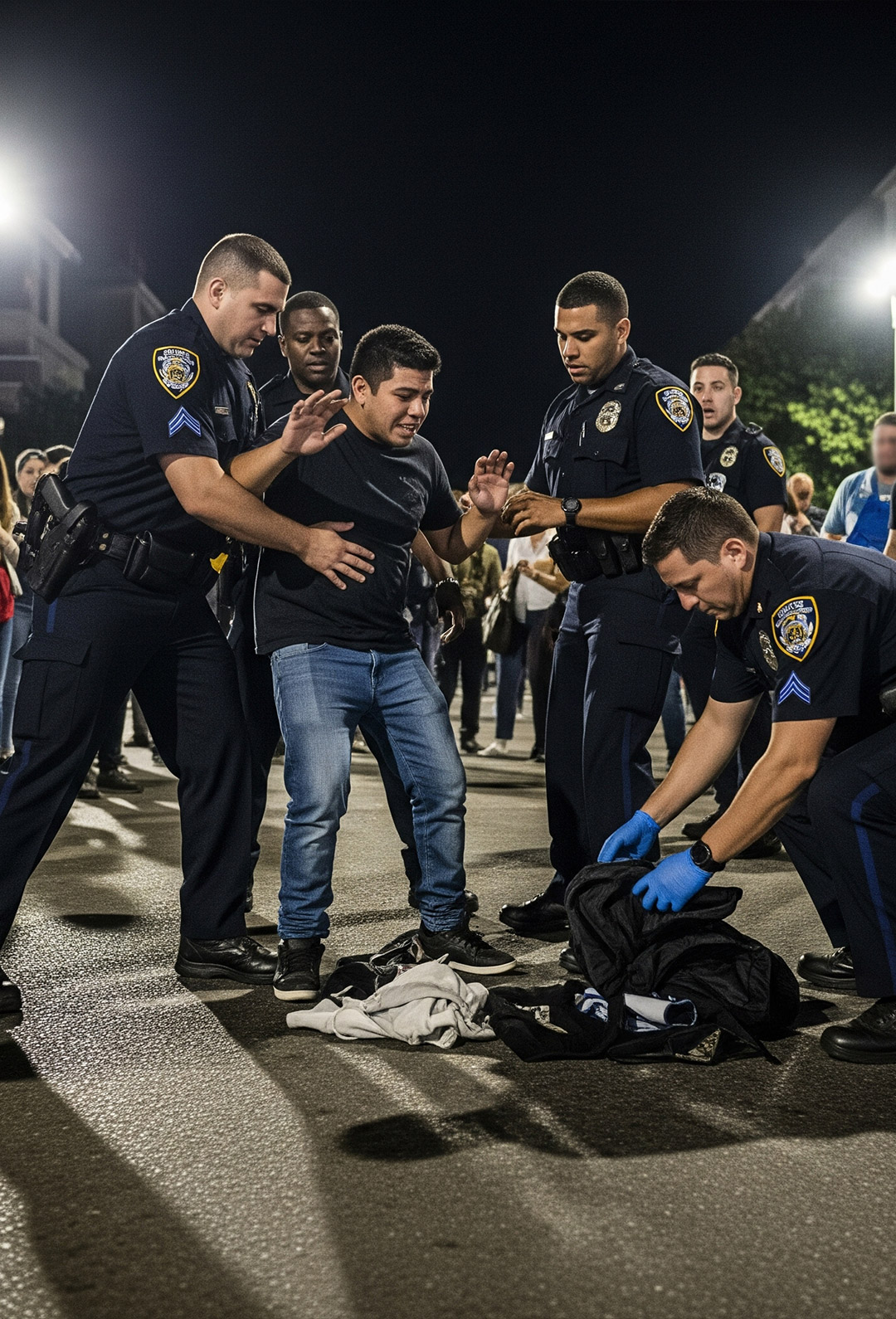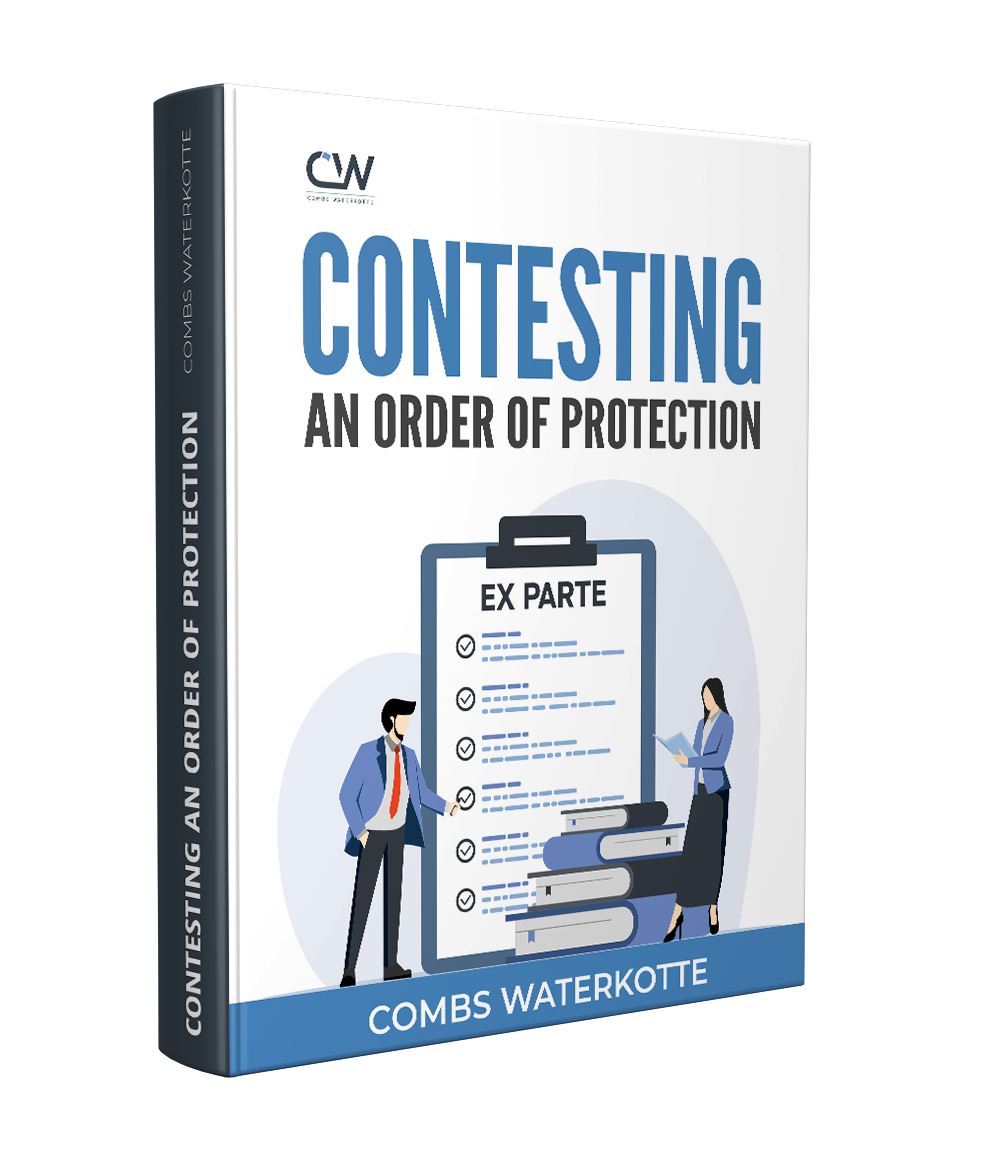Additional Links
- Criminal Lawyers With Payment Plans
- Probable Cause: Police Searches and the 4th Amendment
- Can Police Search My Phone?
- Dos and Don’ts when Interacting with the Police
- Ultimate Guide To Missouri Warrants
- Why Choose Combs Waterkotte?
- Missouri Criminal Defense Resources
- Legal Books
- Legal Videos
- Defending Freedom Podcast

What Is an Unlawful Search and Seizure in Missouri?
Unlawful search and seizure in Missouri is a violation of your rights under the Fourth Amendment of the U.S. Constitution and Article I, Section 15 of the Missouri Constitution. These laws protect you from police searches that are not supported by proper legal authority.
The process is specifically governed by Missouri Revised Statutes §542.271 and §542.291, which set strict rules for when police can get a warrant and how they must carry out that search.
Missouri’s Search and Seizure Laws: What the Statutes Require
- Police must ask a judge for a search warrant and prove why the search is necessary (RSMo §542.271).
- The warrant must clearly list the exact place to be searched and the items police are looking for.
- When serving a warrant, police must knock, announce themselves, wait a reasonable time, and give you a copy of the warrant and a receipt for anything they take (RSMo §542.291).
- Police cannot search beyond what the warrant allows or seize unrelated property.
Plain English: Missouri law says police can’t just go wherever they want or grab anything they see. They must ask a judge first, prove why the search is needed, and carefully follow the warrant’s limits. If they break these rules, the search is likely illegal.

What Constitutes an Unlawful Search and Seizure?
A search is unlawful if police act without a valid warrant, without your consent, or without a strong legal reason like probable cause. Missouri law protects private spaces like your home, car, phone, and personal belongings.
What Is Required to Justify a Warrantless Search and Seizure?
Police can only search without a warrant if a valid legal exception applies, such as:
- You gave consent to the search.
- The item was in plain view.
- There was an urgent public safety risk.
- Police had specific probable cause tied to an emergency situation.
If none of these apply, the search likely violates your constitutional rights, and the evidence may be excluded from court.

Common Scenarios of Illegal Search and Seizure in St. Louis
In St. Louis, illegal searches often happen during everyday police encounters. Many people don’t realize their rights were violated until it’s too late. Common unlawful searches include traffic stops, home searches, and street searches where police overstep legal limits.
Examples of Illegal Search and Seizure in St. Louis
- Searching a vehicle without consent, probable cause, or a legal exception during a traffic stop.
- Entering a home without a valid warrant or a clear emergency justifying immediate entry.
- Stopping and frisking someone on the street without reasonable suspicion of a crime.
- Using the "plain view" rule improperly to justify taking items that were not in plain sight.
- Searching personal belongings like backpacks, phones, or purses without consent or a warrant.
- Searching property marked with "No Trespassing" signs without proper legal authority.
These types of searches frequently happen in St. Louis City, St. Louis County, and surrounding areas during routine traffic enforcement, drug investigations, and home raids.

Can Police Search Your Car Without Permission in Missouri?
No, unless you give consent, the item is in plain view, or they have clear probable cause. If none of these apply, a vehicle search without permission likely violates your Fourth Amendment rights.
What to Do If You Were Illegally Searched
If you believe police searched you or your property illegally in St. Louis, it’s critical to act quickly. Protecting your rights starts with taking the right steps immediately.
How to Beat Illegal Search and Seizure
Working with an experienced St. Louis criminal defense lawyer is the best way to fight an unlawful search. Your lawyer can file a motion to suppress the evidence and challenge the police conduct in court.
Steps to Take After an Illegal Search
- Step 1: Write down everything you remember about the search, including what the officers said and where it happened.
- Step 2: Do not consent to further searches or questioning without legal advice.
- Step 3: Contact a St. Louis unlawful search and seizure lawyer immediately.
- Step 4: Work with your lawyer to file a motion to suppress the evidence and review the legality of the search.
Key takeaway: Acting quickly gives you the best chance to exclude illegal evidence and protect your case. Waiting too long can limit your options.

Defenses Against Unlawful Search and Seizure in St. Louis
The most effective defense against unlawful search and seizure is proving that police violated your constitutional rights. If the court agrees, the evidence can be excluded, which can weaken or even dismiss the prosecution’s case.
What Are the Defenses Against Unlawful Search and Seizure?
Your lawyer can argue that the search was illegal because it lacked a valid warrant, probable cause, or proper consent. If police didn’t follow the law, the evidence should not be allowed in court.
How Does a Lawyer Challenge Illegal Searches?
Your lawyer will investigate the search, review body camera footage, cross-examine the officers, and look for flaws in the warrant or procedure. If police made a mistake, your lawyer will push to exclude the evidence from court.
What Is a Motion to Suppress Evidence?
A motion to suppress asks the court to block evidence that was obtained illegally. If granted, the prosecution may lose the key parts of their case, which can result in reduced charges or a dismissal.
When Does the Exclusionary Rule Apply?
The Exclusionary Rule applies when police obtain evidence in violation of your Fourth Amendment rights. In St. Louis, this means the evidence may be completely barred from the trial.
Can the Good-Faith Exception Save Illegal Searches?
Sometimes, prosecutors argue that police made an honest mistake using an invalid warrant. This is called the “good-faith exception,” but it doesn’t apply if the warrant was obviously defective or if officers knowingly violated your rights.
What Happens If Police Violate Your Fourth Amendment Rights in St. Louis?
When police violate your Fourth Amendment rights, the evidence they find may be thrown out of court. This can result in reduced charges, a dismissal, or even prevent the case from moving forward at all.


































